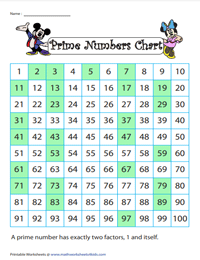

A number x that has at some point be determined to be a prime is not a "known prime" if it is not recorded. A "list" of known primes would have to be recorded. If $n$ is composite, it will almost certainly (again, a slippery term) return "COMPOSITE", but there's a small probability $(\frac$ on a large hard drive for say $500, which would pay for some of the cost creating the list. The Miller-Rabin primality test is an algorithm that takes a number $n$, and a "certainty" parameter $m$, and (in layman's terms) if $n$ is prime, it will return "PRIME". Moreover, it's fairly easy to come up with large primes, and it's fairly easy to "guarantee" (guarantee being a slippery term), that a given large number is prime. This may be a somewhat unsatisfying answer, but no-one's really keeping a complete list of known primes (to the best of my knowledge).


 0 kommentar(er)
0 kommentar(er)
